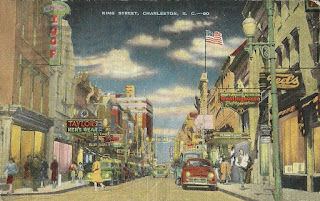Deferred Judgment
The main idea of deferred judgment from the book "Learning from Vegas" really stood out to me because it's similar to the quote "Never judge a book by its cover" which I hadn't ever thought about in an architectural sense. Venturi and Scott-Brown advocate for architects to resist making immediate aesthetic judgments about architectural forms and styles, especially in cities like Las Vegas that are rapidly changing. I find their suggestion of observing and analyzing the built environment with an open mind without any preconceived notions about what's considered good or bad architecture very interesting. This isn't usually our initial thoughts because typically when we see a building we immediately think about what we consider good or bad design. Venturi and Scott-Brown say that by deferring judgment architects can better understand the outside forces that shaped the built environment. I know their example was meant for the rapidly changing and diverse context of modern cities but I wonder if this is something that would benefit our comprehensive studio designs? Could this idea work on the Charleston site?



I like and understand this concept of deferred judgement but it makes me question if the deferral of judgement, by architects who are most knowledgeable, if others will step up and take that right to judge. I know we are only deferring judgement in this scenario, but if there was no judgement of buildings then the profession would be at fatal risk. Also, even a deferral of judgment in a place such as Charleston would be radical as there are so many processes of judgement before anything can be built. Which works both in good and bad ways granted, but delaying that "filter" is an interesting topic when thinking about new developments there.
ReplyDelete